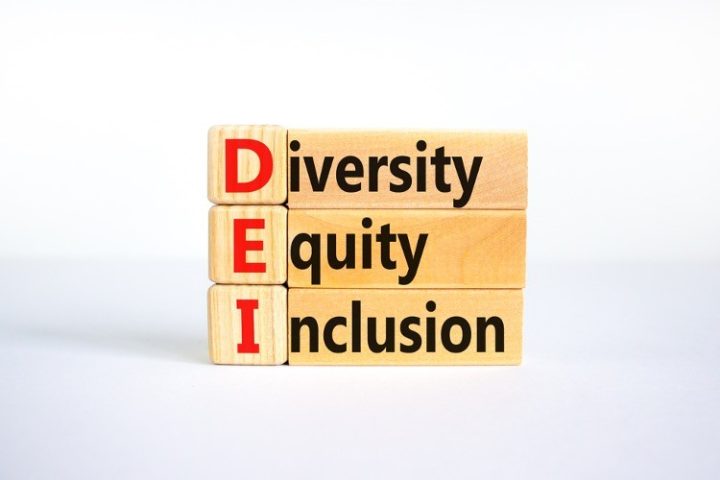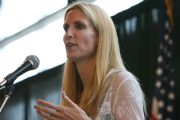
A public-school district in Michigan has made “wokeness” its official policy and has taken it to a whole new level. The Farmington School District held a “21-day Equity Challenge” for its faculty and staff during the month of November — covering themes of race and class privilege, implicit bias, identity and intersectionality, and avoiding microaggressions.
Based on the (largely unproven) theory that it takes 21 days to form a habit, the course — which was ostensibly “voluntary” — spent 21 days covering the whole gamut of “wokeness” in an effort to deeply instill into faculty and staff the principles of white guilt, white privilege, and Critical Race Theory — along with unhealthy doses of LGBTQIA propaganda.
Farmington is a northern suburb of Detroit and boasts of having one of Michigan’s top-rated public-school systems. As of the 2020–2021 school year, the district has a student body of 8,995 in 17 schools. With nearly 1,400 employees, the district is the second-largest employer in the Farmington area. With an operating budget of nearly $200 million, the district spends roughly $22,000 per child per year on education.
How much of that $200 million is spent on programs such as the “21-day Equity Challenge” would be anyone’s guess; school districts — like most government bodies — are notorious for creating budgets that require both a degree in finance and an oracle to make sense of. It is certain, though, that the program is costly.
And what did the taxpayers and parents of Farmington get for that unknown price tag? A faculty and staff well indoctrinated in “wokeness.” The website explaining the program stated:
Scientist Dr. Maxwell Maltz says that 21 days is the amount of time needed to create a habit. Accordingly, 21 Day Equity challenges are designed to offer participants the chance to deliberately focus on issues of equity on a daily basis. By building an “equity habit,” we believe we can learn how to more effectively understand and celebrate our differences.
Farmington Public Schools invites the adults in the Farmington/Farmington Hills community to embark upon 21 days of learning with us by participating in our 21 Day Equity Challenge. Our Equity Challenge is fashioned after the United Way of Southeast Michigan’s 21 Day Equity Challenge but has been curated to contain information about the very diverse population within our own community.
Our Mission Statement is “Farmington Public Schools, together with our community, will engage every student in a quality experience, empowering each student to become a thoughtful, contributing citizen in a changing world.” With this in mind, we, together with you, hope to deepen our understanding about the members of our community and to use this knowledge to confront bigotry, hatred, and discrimination against any individual or group.
It is difficult to miss the peppering of Leftist buzz-words and phrases, such as “engage,” “empowering,” “contributing citizen in a changing world,” “confront,” “bigotry,” “hatred,” and “discrimination.” And while these words are part of the modern lexicon, they rarely have a clearly defined meaning. That is by design.
The website went on to explain:
Starting Monday, November 1, 2021, each day for 21 days you can visit the equity challenge page and will have the opportunity to engage in learning and reflection activities. After completing an activity you may reflect privately on the questions asked or use the shared reflection space link provided on the page to respond each day. In addition to the daily reflection, on Friday, November 5, Friday, November 12 and Friday, November 19, from 6 – 7 p.m., you will also have the option of attending a one hour virtual meeting for our Weekly Wonderings and Reflection. You must register for the Weekly Wondering and Reflection sessions using this link: https://tinyurl.com/FPSWWR
These activities are completely optional and you may participate in as many or as few of the activities as you would like. The challenges will remain available throughout the month of December if you would like to participate, but need additional time.
Farmington Public Schools is home to many students and families from varying backgrounds and life experiences, and the way we come together each day is nothing short of impressive. We are proud to be able to serve our community and look forward to productive dialogue and collaboration.
So, what questions did participants answer in the “shared reflection space” provided? Consider the following from the provided material, and the “correct” answers become obvious. Day three addressed “Equity and Equality.” After reading and watching the carefully curated materials, participants were asked, “What do you believe is more ‘fair’ — equity or equality? Why?” and “What programs are you aware of that strive to create equitable conditions? Some examples are free and reduced lunch, special education and International Baccalaureate programs — are you surprised that these are equity initiatives?” The guiding principle at the top of the page states, “Equality is giving everyone a shoe. Equity is giving everyone a shoe that fits.”
Day 4 was about “Identity and Intersectionality” and began with this guiding principle:
Intersectionality — Redefining Labels: We are all comprised of different identities and intersectionality is finding out how all of these identities fit together. We chose this theme because we feel that society tries to label us and put us in a box. In reality we are complex human beings that are multifaceted and we deserve to be seen as a whole picture — not just a label or one thing. Being complex creates shades within ourselves and that’s beautiful!
Questions for the participants included, “Which of your social identities make you feel the most affirmed?” “Which of your social identities make you feel most vulnerable?” and “Do you think that some people have to think more about their social identities than others or do you think some people choose to think more about their social identities than others?”
Other topics included: Day 6 — Racial Identity, Day 7 — Race and Class Privilege, Day 11 — Wealth Inequality, Day 13 — Gender and Sexuality, Day 16 — Gender Equality, Day 17 — Implicit Bias, and Day 18 — Microaggressions.
Though the “wokeness” of the program is apparent and obvious in the title and subjects alone, the deeper “wokeness” to be found in the discussions and questions is almost mind-numbing. For example, Day 6 — Racial Identity — included readings on “Ten things everyone should know about race” and states that race is a modern idea, with no basis in genetics.
Someone should probably tell all those geneticists beavering away in forensic labs all over the world that they can’t tell a person’s race from their DNA.
And in case you ever wondered whether you are guilty of strewing microaggressions around like so much confetti, the answer is probably yes. Day 18 explained that propagating the “myth of meritocracy” (that those who work harder and smarter will do better) is a microaggression. So is claiming that “men and women have equal opportunities” or that “America is the land of opportunity.”
Given all of this and more found in the course, the correct answers for a white male would be something like, “I am a worthless, homophobic, microaggressive, racist. I cannot change, but I will hate myself as a form of lifelong penance.”
But as “wokeness” continues to shift the ground beneath our feet, eventually, even such grovelling pandering won’t be enough. The only answer will be the expulsion from society of all straight, white people — especially straight, white men.




